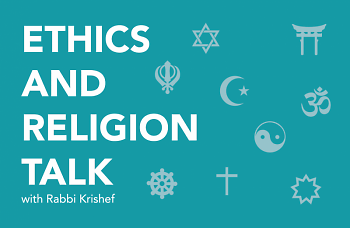Rev. Ray Lanning, a retired minister of the Reformed Presbyterian Church of North America, responds:
"As one who was ordained to the gospel ministry in 1977, I can attest that people can change under the power of God’s Word and Holy Spirit. Those who have ears to hear God’s Word, and hearts prepared to receive it, are capable of profound and lasting change in outlook, attitudes, beliefs and manner of life. I have witnessed such change in many individuals, and sometimes in congregations and denominations. Humankind were changeable from the beginning and that is why our race yielded to lies and temptation and fell into sin. But the gospel of Jesus Christ is “the power of God unto salvation to everyone that believeth” (Romans 1:16). While it is true that not everyone believes truly and not all who profess to believe persevere to the end, where God’s electing love and Christ’s atoning work take root in the heart and mind, they cannot fail to effect deep and lasting change in the form of justifying faith and repentance unto life. “In God is my salvation and my glory: the rock of my strength, and my refuge, is in God” (Psalm 62:7)."
Fred Stella, the Pracharak (Outreach Minister) for the West Michigan Hindu Temple, responds:
"I’m going to split the difference here. By all means, my ministry and life itself has clearly taught me that people can change. I know I certainly have on several levels. Of course, there still is a sort of “me-ness” that might not ever go away. One way that I’ve tracked my own growth is by reviewing journals that I’ve quite consistently kept since I was 18 years old. As I read the entries, it’s clear that great changes have taken place. Sure, some of it is good old-fashioned maturity. But beyond that, I can see a major shift in my focus on spirituality and self-discipline. Yet I’m sure many people who might not have seen me in 40 or 50 years could chat with me for 5 minutes and say, “Yep, same ol’ Fred.” They are spotting that me-ness that is really locked in. But all of that is rather surface level stuff. If we were to get down in to the trenches of who I am today, they would have to agree that seismic changes have taken place.
I use myself as an example, but otherwise, I’ve witnessed great changes in others who make the effort. And we cannot dismiss what accidents, illness, trauma, bumps on heads, etc. can do to a person. We’ve all heard of situations where a person wakes up from a coma and can be unrecognizable to their loved ones. More often than not, in situations like these the change is unwelcome."
The Reverend Colleen Squires, minister at All Souls Community Church of West Michigan, a Unitarian Universalist Congregation, responds:
"I absolutely believe people can change; I have witnessed this many times over. I have seen people change in both negative and positive ways. The greatest moments in ministry are witnessing someone facing a challenge, confronting it head on and growing from that experience."
Father Kevin Niehoff, O.P., a Dominican priest who serves as Judicial Vicar, Diocese of Grand Rapids, responds:
"Yes, I do believe people may change. However, the motivation for change does not come from without. A person will only change by the personal choice to modify thoughts and behaviors.
Another word for change is conversion. The Roman Catholic Church teaches that the sources of conversion are the reception of the Eucharist, doing penance, and reading the Scriptures daily (Catechism of the Catholic Church, p. 361).
Conversion of heart is not necessarily easy. A person may become quite bitter and angry. Yet, God may melt the hardest of hearts. An important demonstration of conversion is the actions of Saint Paul, who first persecuted the Jews before God removed the scales from his eyes."
My response:
"To say that change is not possible is to say that human beings are prisoners of the programming of their genetics and their early upbringing. That said, change is not easy. I have known more people who have not been able to overcome the pathways which their early lives inscribed into their neural networks and continued to be slaves to habitual behaviors, than those who have overcome past habits. But I have known the people who have changed their lives in significant ways.
There is a variation of the old “change a light bulb" joke – How many psychologists does it take to change a lightbulb? Only one, but it has to really want to change. The Jewish New Year and Day of Atonement holidays are based on the notion that change can happen, but only if we do the work to make it happen."
This column answers questions of Ethics and Religion by submitting them to a multi-faith panel of spiritual leaders in the Grand Rapids area. We’d love to hear about the ordinary ethical questions that come up in the course of your day as well as any questions of religion that you’ve wondered about. Tell us how you resolved an ethical dilemma and see how members of the Ethics and Religion Talk panel would have handled the same situation. Please send your questions to [email protected].
The Rapidian, a program of the 501(c)3 nonprofit Community Media Center, relies on the community’s support to help cover the cost of training reporters and publishing content.
We need your help.
If each of our readers and content creators who values this community platform help support its creation and maintenance, The Rapidian can continue to educate and facilitate a conversation around issues for years to come.
Please support The Rapidian and make a contribution today.
